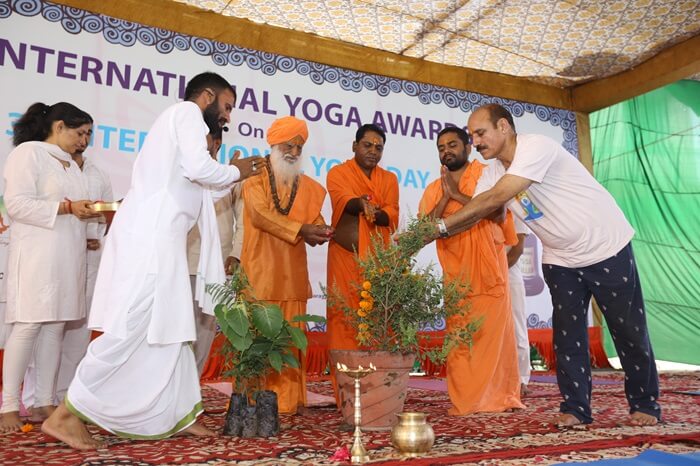A Yogic Approach to Manage Arthritis

It’s morning again! Time to rise and shine!
You wake up, ready to get out of bed, when a sudden cringe escapes your lips, stopping you mid-way: “Ouch!” or “Oh, Lord!” Your body feels stiff, and every joint seems to be in agony. This pain and stiffness don’t discriminate—they can affect anyone, regardless of religion, sex, color, ethnicity, or age.
Understanding Arthritis
For a few moments, until blood circulation improves, you might find yourself immovable. You could either move like a robot or choose to stay in bed, compressing a painful joint—whether it’s your knee, wrist, or lower back—in hopes that the discomfort will subside, allowing you to start your day. This cycle continues day after day.
You might try to ignore the pain until it becomes unbearable and no amount of hot water bags or painkillers seems effective. At this point, you might seek medical consultation. After a series of expensive tests, you receive the diagnosis: “You have arthritis!”
As you process this news, you might question the accuracy of the diagnosis, wondering if it’s too early for such a condition or if there could be another cause. The doctor prescribes stronger painkillers and suggests a few exercises to manage your condition. This is when the healing power of yoga therapy might come to your attention, marking the beginning of your journey in arthritis management.
Yoga for Arthritis Management
Yoga therapy has long been recognized as a beneficial practice for managing arthritis. Starting early can be more effective than waiting for a diagnosis. Here are some yoga asanas that can help manage arthritis and improve overall fitness:
Suryanamaskar (Sun Salutation Series):

Begin your day with Suryanamaskar to instantly revive blood circulation and stretch your spine for maximum flexibility and comfort. Learn more
Shishuasana (Child’s Pose):

This pose helps stretch and improve flexibility in the lower back and also flexes the butt muscles. Learn more
Vriksha Asana (Tree Pose):

This pose increases blood circulation in the thighs, hips, and ankles, and strengthens the area around the legs, feet, ankles, and abdomen. Learn more
Jasti Asana (Stick Pose):

This pose helps heal inflammation in the knee and ankle, improves blood circulation, and eases pain. Learn more
Utkatasana (Chair Pose):

This pose is beneficial for strengthening and improving the flexibility of the spine, knees, and wrists. Learn more
Dandasana (Staff Pose):

Ideal for advanced arthritis, this pose provides instant relief for knee arthritis. Learn more
Parvatasana (Mountain Pose):

Effective for treating osteoporosis, this pose is highly recommended, especially for women suffering from this condition. Learn more
Setubandhasana (Pelvic Tilt Pose):

This pose works on flexing the lower back muscles and strengthens the spine. Learn more
Conclusion
Incorporating these asanas into your daily routine can significantly aid in managing arthritis and enhancing overall well-being. It’s essential to combine yoga with an organic diet and avoid processed foods to maximize benefits. Acidic foods can increase uric acid levels, exacerbating arthritis symptoms. Always practice these poses with controlled movements and under the guidance of a trained practitioner to avoid adverse effects.
For more information on managing arthritis and to explore how yoga can transform your life, consider joining a Yoga Teacher Training program in India. Discover the benefits of yoga firsthand and embark on a path to a healthier, pain-free life. Explore our Yoga Teacher Training courses in Kerala and start your journey today!















